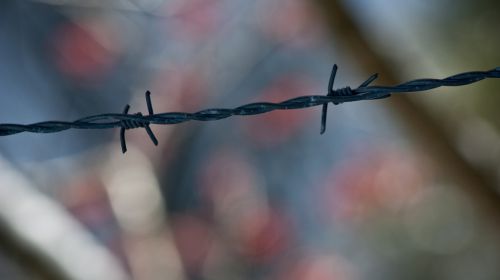Does Surveillance Affect Us Even When We Can’t Confirm We’re Being Watched? Lessons From Behind the Iron Curtain


During the Cold War, as I argued last week, the totalitarian governments of the Soviet bloc functioned as a standing warning to Americans of the dangers of unchecked surveillance—lessons that we would do well to remember despite the fall of the Iron Curtain.
As it happens, a coalition of civil liberties organizations from around the world has made a similar point in a very interesting amicus brief submitted to the Supreme Court as it prepares to hear arguments two weeks from today in Amnesty et al. v. Clapper, our challenge to the FISA Amendments Act. (That legislation retroactively legalized much of the Bush administration’s unconstitutional warrantless NSA spying program.)
The main issue before the court right now is whether the plaintiffs we are representing (a group of human rights, labor, legal, and media organizations whose work requires them to communicate with people outside the United States) even have standing to challenge the law. The government is arguing that since none of them can be certain they are subject to eavesdropping, they have no right to file suit. But, as we argue, even the possibility of eavesdropping harms these plaintiffs.
In their brief, the civil liberties organizations from Argentina, Canada, Egypt, Hungary, Ireland, Kenya, South Africa, and the U.K. point to the experience of individuals living under surveillance in Soviet bloc countries, and how those stories show the harm that surveillance can bring even when it cannot be confirmed. They cite, for example, a memoir by Kati Marton about growing up in Budapest during the 1950s. Marton’s father, a reporter for the Associated Press, and her mother, a reporter for UPI, suspected but did not know that the government was monitoring them (documents later showed it was). And they never knew precisely how or when any surveillance was taking place. Yet this was enough to prompt them to take extensive measures to guard against such spying, and cast a pall of suspicion over their lives.
Marton’s father, for example, routinely felt he had to take evasive maneuvers when driving to make sure nobody was following him, and suspected that his children’s nanny was a spy for the government. Her mother was afraid to use the telephone, and even ripped it from the wall lest it be used by the government as a microphone even when no call was taking place.
The brief also cites the historian Timothy Garton Ash, who has written about his own encounters with the surveillance state in East Berlin, and Anna Funder, who has written extensively about life under the Stasi. In East Germany, as Funder wrote,
it was inconceivable that a person would ask a stranger, a total stranger whether they lived near the border. It was also inconceivable that the stranger would ask you whether you were thinking of escaping. . . . Relations between people were conditioned by the fact that one or the other of you could be one of them. Everyone suspected everyone else and the mistrust this bred was the foundation of social existence.
This kind of social division and mistrust is one of the hallmarks of surveillance societies. When people can’t trust each other, they can’t cooperate or organize. Marton, too, described how socially isolating the surveillance in Hungary was. From the brief:
Just as the Martons took reasonable steps to evade surveillance, other members of the Budapest community took steps to stay away from them. Kati recalls that “[m]ost Hungarians feared and avoided my parents.” Even as a child, she “understood” that Zsuzsi Kalmar, another local child, “could not reciprocate [a] visit to her home for fear of being contaminated by [the Marton family].” In this atmosphere of distrust, an America diplomat living next door to the Martons even suspected that the Martons themselves were Hungarian spies.
Of course, the point is not that the FISA Amendments Act is equivalent to the kind of surveillance that took place behind the Iron Curtain. Rather, it’s that there are things we can learn from the experience of extreme surveillance in Eastern Europe. In particular, that experience makes especially clear a point that the government is trying to obfuscate in this case: the negative effects of surveillance flow not just from direct observation, but equally from uncertainty over whether and when one might be under observation. Even a person who was never actually spied upon could have his or her life drastically curbed by the threat of such spying.
That is a dynamic that operates in all times and places where such a threat is present. The brief also includes a succinct rundown of studies that have shown how perceptions of surveillance (not just surveillance) cause psychological stress and altered behavior:
For example, a workplace study conducted statewide in New Jersey found a direct correlation between workers’ perceptions of surveillance and negative sentiments concerning privacy, role in the work place, self-esteem, and workplace communication.… Similarly, a study of seven urban centers in New Zealand supported the conclusion that a perceived lack of privacy is directly associated with psychosomatic stress.
While we are no East Germany, some lessons from that time and place have become newly relevant to us in different ways in our age of high technology. We humans are inherently social animals, keen at all times to know how we are presenting ourselves before the eyes of others. Unless we feel entirely secure in our privacy, we will act in guarded ways—and that means, to a greater or lesser extent, we will not be free.
Let’s hope that the Supreme Court recognizes that fundamental reality. Oral argument in the Amnesty case will be held on Oct. 29, with my colleague Jameel Jaffer arguing on behalf of the plaintiffs.

